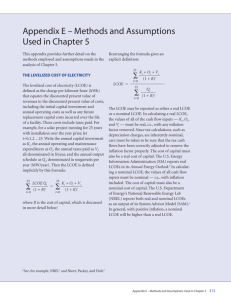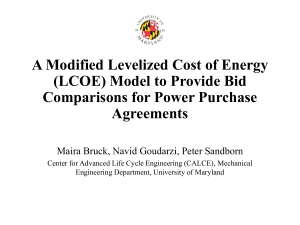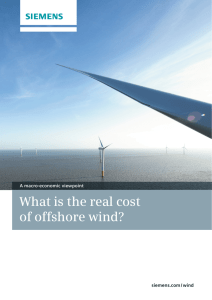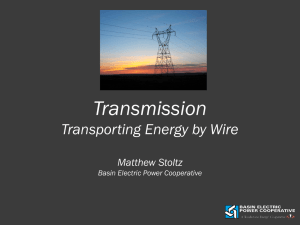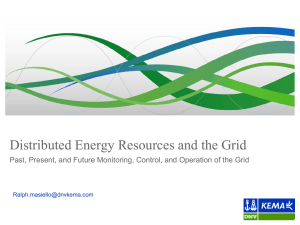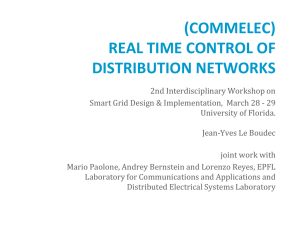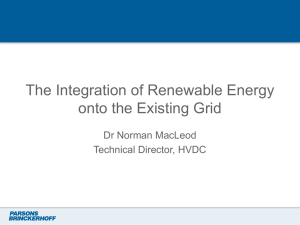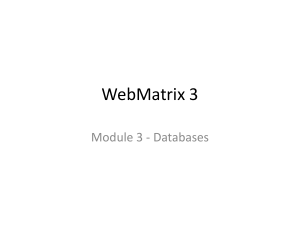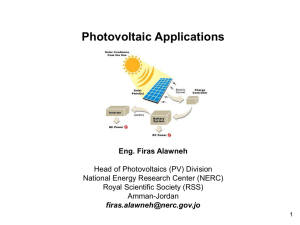SolarPV-Nov2014CR
advertisement
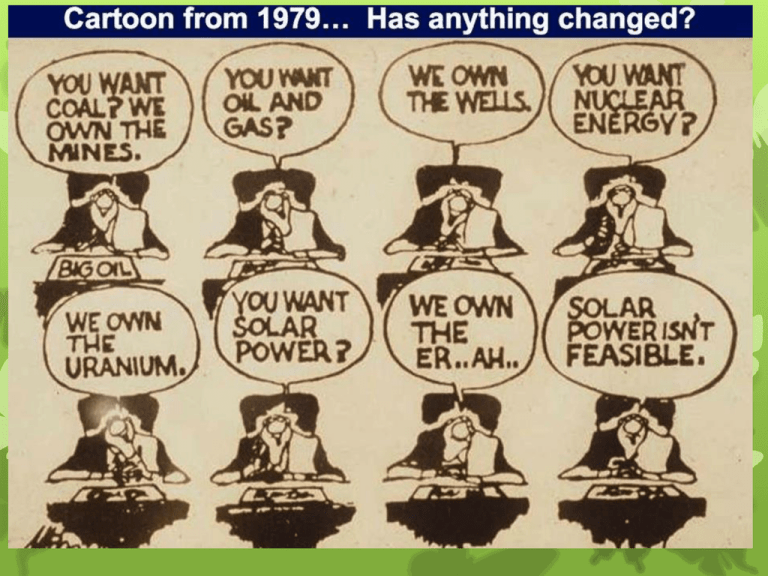
Photon Power A Power-Hungry World Ageing Grid, Exceeding Life Expectancy: $17 Trillion (2013) Needed Globally Why Invest In Failing Centrally-Controlled Infrastructure? Energy Delivery of The Future Drivers Of Change Falling cost Rate hikes – 28% by 2018 in B.C. Grid parity – 75% in 18 months. B.C is already there ! Incentives Fossil fuels – Climate Change How do Solar PV Modules Work? Large Scale Commercial T’Souke First Nation: Population 250. Plan to reduce energy consumption by 75% and then net zero. 75 kW of solar Small Scale Residential 3 kW (12 Panel) Grid Tie System 10 kW (40 panel) Grid Tie System Process Yearly Consumption Budget Replacement decision Physical site analysis – sun exposure, obstructions, space, roof vs ground, stresses re wind, structural issues, visual impacts, neighbours, bylaws, security and other considerations Determine system size, number of panels, wiring requirements, location. Coordinate the install, permits and inspections necessary to complete. Traditional Systems Microinverter System Advantages Of Grid Tie Microinverters 240 volt AC, not 600 volt DC Lower installation cost Partial shading not a problem Redundancy—no system failure vs string inverters Cost for system units on par with string inverters Racking System With Microinverters Panel Mount over Microinverter Before installing PV, reduce consumption Do we have enough Sunshine? Look at Germany Solar power works on cloudy days! The small demonstration inverter, rated at 1100 Watts is putting out close to 50% capacity. On a full-sized system (10 kW), this would be 4745 Watts. That’s enough to run 47 100 Watt light bulbs at the same time. To Battery or not to Battery To Battery or not to Battery Costly, high maintenance, and cannot transfer power for more than a few days. Not enviro friendly. Use the Grid as a battery. Accounting shifts summer surplus to winter deficit. Three Meter Options Analog: No credit for surplus RF off: Reading fee RF on: Automatic credit for surplus The Fortis /B.C Hydro Tariff To qualify for net metering, a Grid Tie System must have an approved bi-directional (smart) meter installed. From The Fortis Net Metering Guidelines http://www.fortisbc.com/Electricity/CustomerS ervice/NetMeteringProgram/Docum Section 3.1.5 "It is required that the customer's facility be equipped with a bidirectional meter (or a meter approved by a Fortis designer) Photon Power - GabEnergy A Non Profit Society The purposes of the Society are to: promote and facilitate the development of sustainable alternative energy sources for Gabriola; conduct educational outreach for alternative energy projects; build skills and expertise on Gabriola for alternative energy development; and facilitate the provision of low cost infrastructure for alternative energy systems throughout British Columbia. How Portal connecting buyers to the wholesaler – not resellers Provide advice, coordinate ordering, shipment and delivery of system components. To cover fixed costs, a five percent donation for above services is requested. *Prices do not include shipping, GST, installation & donation. The Economic Case - Austin Texas Levelized Cost (LCOE) for Solar LCOE is the industry standard for analyzing delivered energy costs. Cost divided by power produced 10 kW.h system on Gabe $26,000.00 / 275,000 kW.h $0.09 per kW.h Levelized Cost (LCOE) for Solar LCOE for this installation is just Nine cents Per kW.h Guaranteed for 25 Years into the future! * No other Energy Source can match that; not even close! 10 kW Installation Option A Per watt costs Components DIY Mounts Wiring Inspection Shipping Taxes, fees Misc Labour Total $1.47 $0.10 $0.12 $0.05 $0.12 $0.15 $0.15 $2.16 Option B PerTurnkey Watt Costs Components Wiring Inspection Shipping Taxes,Fees Labour TotaL $1.73 $0.12 $0.05 $0.12 $0.15 $0.35 $2.52 The Numbers….. What To Look For LCOE of $0.09 per kW.h Installed cost no more than $2.60 / watt In fact we just did an install where the LCOE was $0.07 per kW.h and the installed cost was just $2.04 per watt! Other Approaches IPP Over 1 MW Municipal / Private Kimberley 1 MW 4,200 Panels Azimuth tracking Net Metering Up to 100 kW Existing service to property Physical size 400 panels - twice the size of a basketball court Net Meter Earth Heartbeat Investor Co-op Investor Co-op Many Models: Europe, Ontario Shares, usually a module multiple Regular stock options Member owned and controlled Community Project Community Project One time initiative Salt Spring School On going small administration Community Co-op Community Co-op Donations Membership owned & controlled Expands over time Directs benefits to a mix of community programs Volunteer Board & Admin Eventually will need paid staff Site Selection Site Selection Physical parameters Private, Crown or other Legal, lease, covenants, rate of return Eventual replacement of infrastructure Technical, Regulatory Technical, Regulatory Bylaws ALR Tax, zoning implications Legal Legal Legal Structure Business details Communications Communications Internal External Expansion, fund raising www.gabenergy.com

